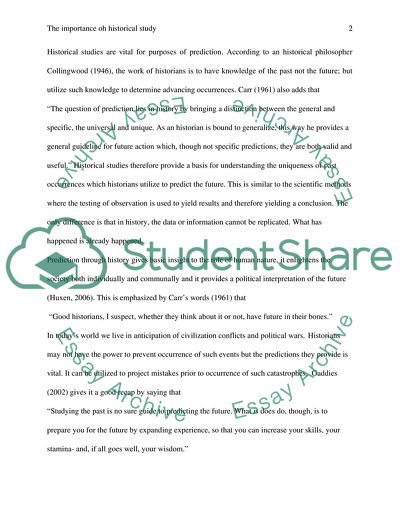The Philosophical foundations of historical Inquiry Essay - 1. https://studentshare.org/history/1774411-the-philosophical-foundations-of-historical-inquiry
The Philosophical Foundations of Historical Inquiry Essay - 1. https://studentshare.org/history/1774411-the-philosophical-foundations-of-historical-inquiry.


